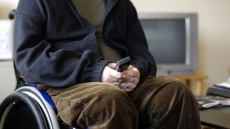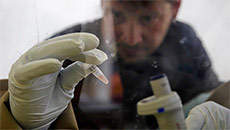Children of mothers who work full time may not be getting the amount of sleep they need each night, placing them at higher risk of being overweight or obese within a year, finds research.
"We looked at night-time sleep in particular, because studies show that the amount of nighttime sleep matters for regulating weight," said co-author Janet Liechty, a professor of medicine and of social work at University of Illinois.
"We think that it might be the more hours that mothers are working, the less time they have, and there may be some sort of tradeoff going on, 'Do I spend quality time with my child or do we get to bed early?’” explained lead author Katherine Speirs, a postdoctoral research associate.
“And then in the morning, when mothers leave for work, their children also wake up early to get to day care,” Speirs added.
The researchers followed 247 mother-child pairs for one year.
The children, who ranged from three to five years old, were weighed, measured and had their body mass index (BMI) calculated at the outset of the study and again one year later.
At the second weigh-in, 17 percent of the preschoolers were overweight and 12 percent were obese, according to BMI-for-age growth charts.
Children whose mothers worked full time got fewer hours of sleep than peers whose mothers worked less than 20 hours per week.
The children of women who worked full time also tended to have higher BMIs at the second weigh-in.
The study appeared online in the journal Sleep Medicine.





